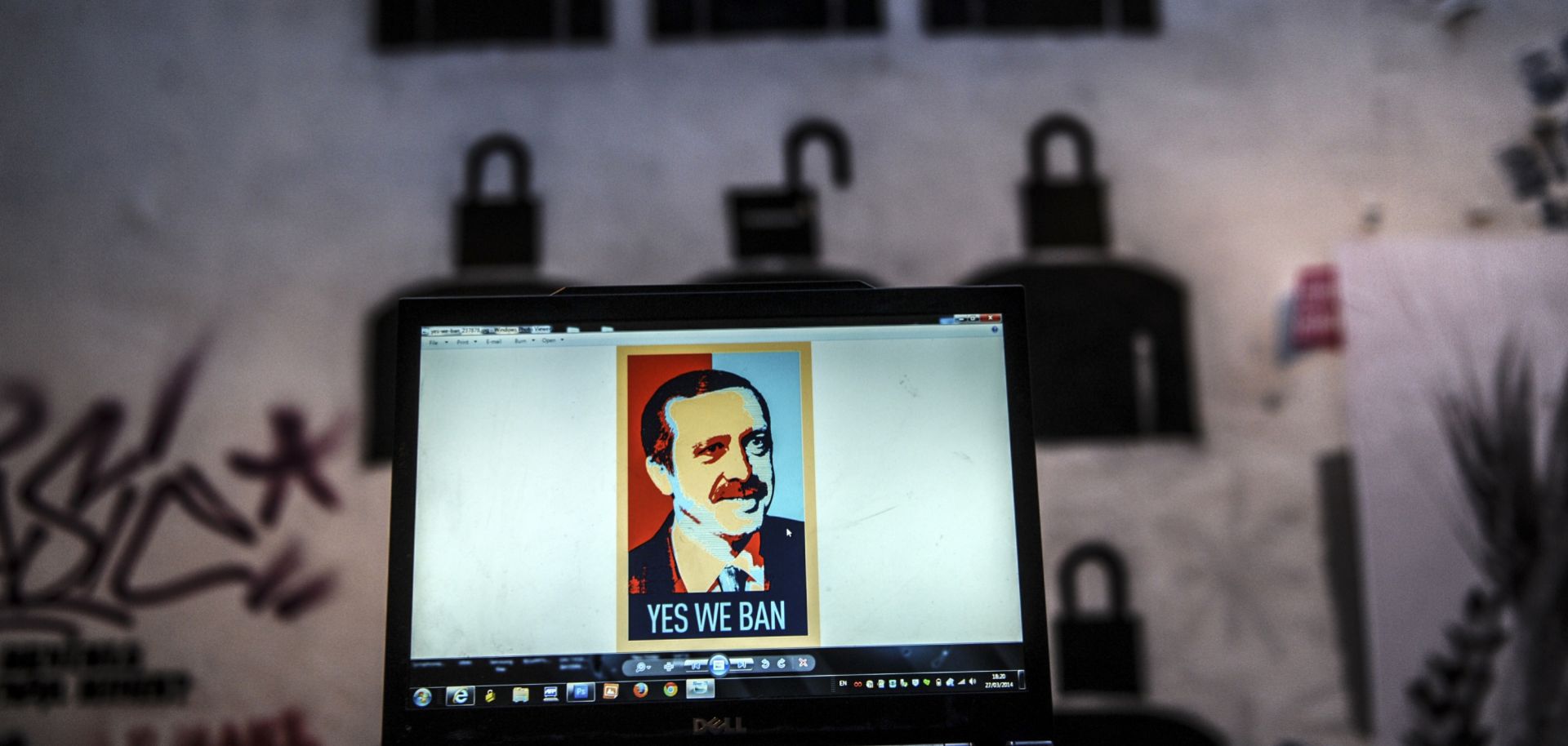ASSESSMENTS
Bending the Internet: Turkey Tests the Limits of Online Control
Jun 21, 2018 | 09:00 GMT

A laptop screen in Istanbul shows an image of Turkish President Recep Tayyip Erdogan emblazoned with the slogan "Yes We Ban," a play on former U.S. President Barack Obama's campaign iconography. Erdogan's administration has tried to ban or block several popular websites and social media platforms, including YouTube and Twitter.
(OZAN KOSE/AFP/Getty Images)
Highlights
- Since the Gezi Park protests in 2013 and the attempted military coup in 2016, Turkish President Recep Tayyip Erdogan and his Justice and Development Party have stepped up their efforts to monitor and control internet use.
- Erdogan's administration has launched bots, harassed members of the opposition online, passed tighter laws and developed domestic apps to better police the internet.
- Despite these efforts, the Turkish president will probably never reach the same level of control over cyberspace that his counterparts in Iran and China have attained.
Subscribe Now
SubscribeAlready have an account?
